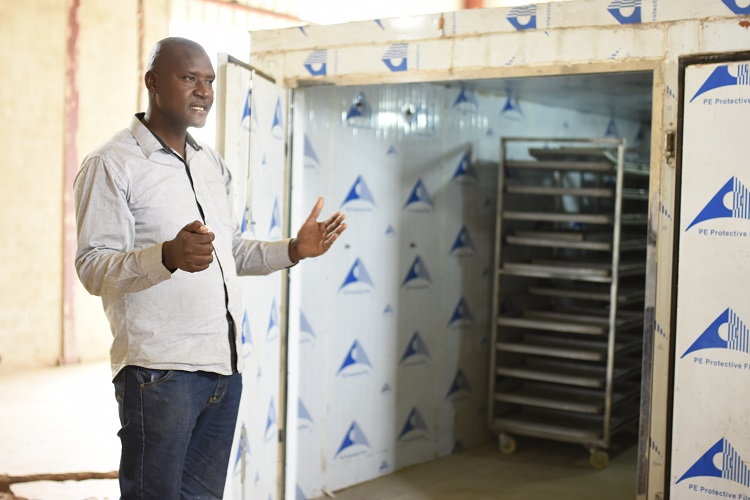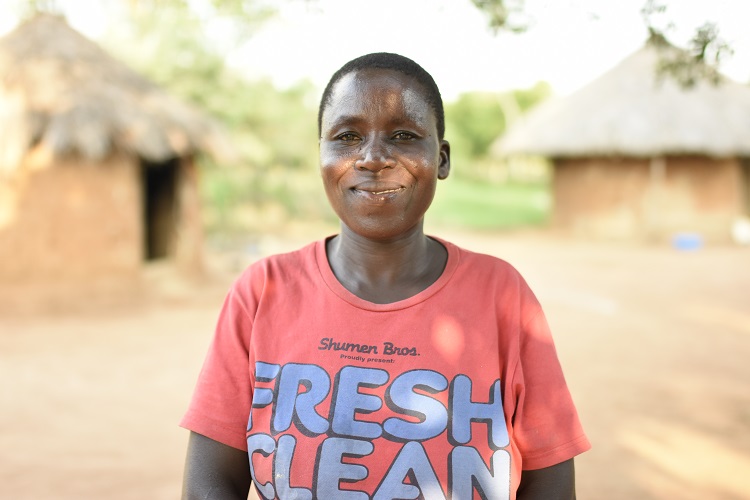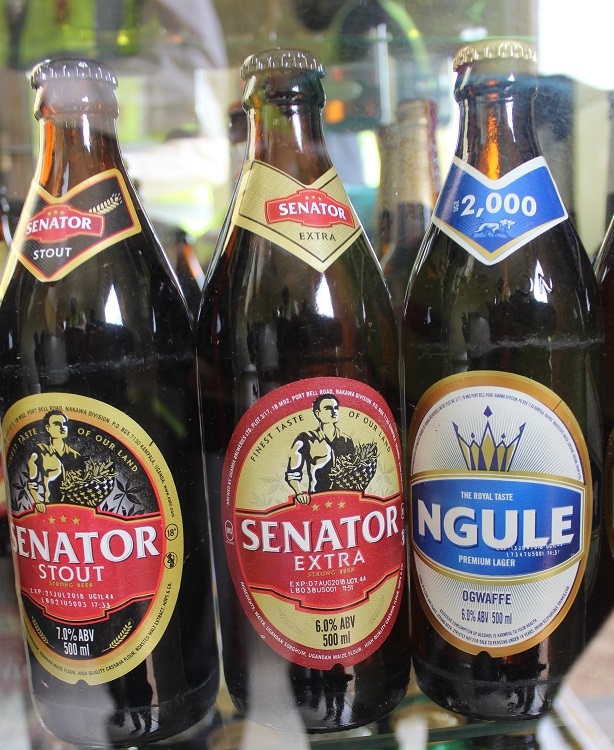In the face of climate change, cassava is no longer considered just a ‘famine reserve’ crop, but a prime raw material for industry and a sustainable business for farmers. “When the brewery was looking for options, a contingency plan,” says Joseph Kawuuki, Agriculture Manager at Uganda Breweries Limited, “there were cases we were struggling with sorghum, and we thought of cassava. It is tolerant to the changing weather patterns, because the majority of (other) crops have been affected by this, especially a lot of drought. Actually, our biggest beers by volume are from cassava.”
In 2013, Joseph met the CAVA team, and together they carried out a study on the viability of using cassava in their beer; they visited farmers, collected cassava samples, and used 300 tonnes of fresh roots for trials. In 2014, UBL scaled up to 2,500 tonnes and now they use 6,000 tonnes of cassava every year. The ready supply of good-quality cassava from smallholders that UBL now enjoys did not happen by accident, as Joseph attests, “it is good that CAVA had run round the country mobilising farmers; availing improved varieties, linking farmers to markets, helping the suppliers and the farmers to access technology for processing cassava. And then continuously developing them.”
Zaituna Amuge Emuutu is a farmer with 40 years’ experience, whose cassava yield improved after CAVA training, expanding from one cassava garden to three. “We started with NASE3, which seemed a very high-yielding cassava withstanding heat conditions, diseases. We’re really finding life moving with that.” Along the same line, Paul Okelo, Agronomist at UBL, tells us, “We have realised that for farmers to find cassava a profitable crop, then productivity is very important, because if farmers are able to yield better, they are able to get a lot more money. CAVA has helped the farmers identify better, new varieties that we have produced and introduced in the Ugandan market. I credit the promotional extension of those varieties a lot to the work that CAVA was doing, alongside other research organisations like NARO, and together with UBL.”
“After getting more and more trainings from CAVA, our group transformed into a cooperative in 2009,” says Zaituna, describing P’KWI, the Popular Knowledge Women’s Initiative. “Currently, we have 2500 farmers. We ensure that uprooting of cassava is very early! When the sun rises, you’ll be transporting, so that you peel and wash in time, and the grating or chipping takes place before the sun is wasted.”


CAVA also facilitated access to other processing machines, such as chippers and presses, for the smallholder processors. Zaituna is sure of the benefits, “My livelihood has improved. I have enough skills and knowledge in managing cassava in many areas. I have managed to construct a better house, out of the sweat of CAVA. I get good money and I could buy animals. Through CAVA also, I managed to educate my boy up to university level.”
The CAVA2 project ran from 2014–2019 with the aim of improving the lives of smallholder farmers across five countries in Africa: Nigeria, Ghana, Uganda, Tanzania and Malawi. Supported by the Bill & Melinda Gates Foundation, CAVA2 was led by Nigeria’s Federal University of Agriculture, Abeokuta (FUNAAB) and NRI. The project’s focus was to develop the value chains of cassava, the tropical root crop that’s a staple food for millions of people across Africa. Once harvested, the crop needs to be processed quickly, for fresh cassava roots begin to deteriorate 72 hours after harvest. Other challenges include increasing yield, managing pests and diseases, and transporting the bulky roots by road.

